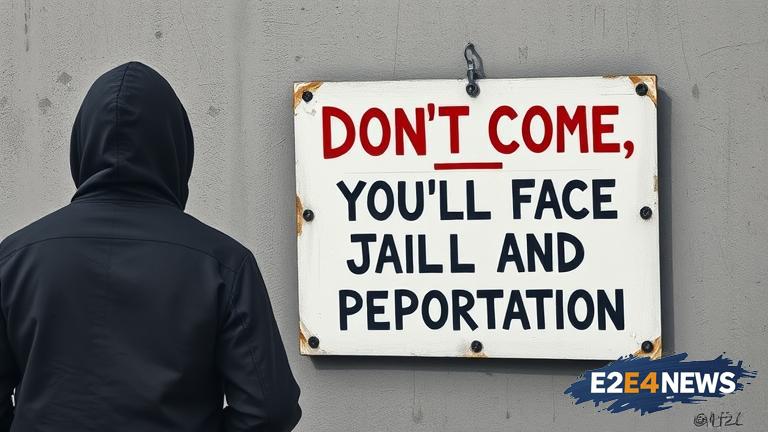Greece’s immigration minister, Notis Mitarachi, has issued a stark warning to migrants, telling them not to attempt to enter the country illegally. In a statement, Mitarachi emphasized that Greece will not tolerate illegal immigration and will take strict measures to prevent it. He warned that migrants who attempt to enter the country without proper documentation will face arrest, detention, and deportation. The minister’s comments come as Greece struggles to cope with a surge in migrant arrivals, with many attempting to cross the border from neighboring Turkey. The Greek government has been criticized for its handling of the migrant crisis, with human rights groups accusing it of using excessive force and violating international law. Despite this, Mitarachi remains resolute, stating that Greece will do everything in its power to protect its borders and maintain public safety. The minister’s warning has been met with skepticism from migrant advocacy groups, who argue that it will only serve to drive migrants further underground and increase the risk of exploitation. Meanwhile, the European Union has pledged to support Greece in its efforts to manage the migrant crisis, with the European Commission announcing plans to provide additional funding and resources to help the country cope with the influx of arrivals. As the migrant crisis continues to escalate, Greece finds itself at the forefront of the debate, with the government facing mounting pressure to find a solution. The country’s immigration policy has been the subject of intense scrutiny, with many calling for a more compassionate and humane approach. However, with the rise of anti-immigrant sentiment across Europe, it remains to be seen whether Greece will be able to find a balance between protecting its borders and upholding its humanitarian obligations. The situation has also sparked tensions with Turkey, which has been accused of failing to do enough to prevent migrants from crossing the border into Greece. As the situation continues to unfold, it is clear that the migrant crisis will remain a major challenge for Greece and the European Union as a whole. The Greek government’s approach to the crisis has been shaped by a combination of domestic and international factors, including the need to maintain public safety and the requirement to uphold international law. Ultimately, the outcome of the crisis will depend on the ability of the Greek government and the European Union to work together to find a solution that balances the need to protect borders with the need to protect human rights. The migrant crisis has also had a significant impact on local communities in Greece, with many residents expressing concerns about the impact of large-scale migration on public services and the economy. In response, the Greek government has announced plans to increase funding for migrant integration programs, aimed at helping newcomers to settle and integrate into Greek society. Despite these efforts, the road ahead will be challenging, and it remains to be seen whether Greece will be able to find a lasting solution to the migrant crisis.
